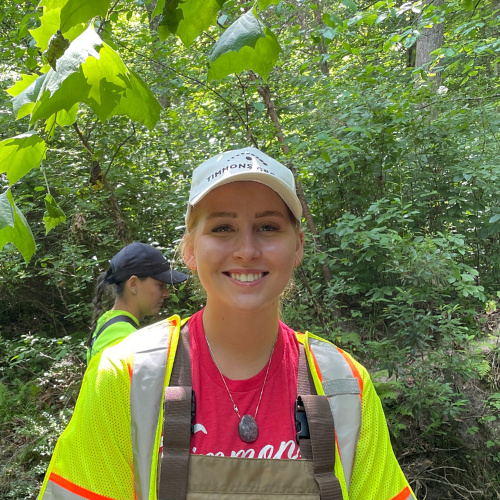Last week, the Timmons Group marketing team joined the Richmond stormwater team on a two-day site visit and inspection of Mechump Creek, a previously completed stream restoration project. This was my first month interning at Timmons and I am not sure how I expected my first ever site visit to go, but I definitely did not think I would have had as much fun as I did! It was almost like I was a kid in a candy store except it was a creek and I have a safety vest on.
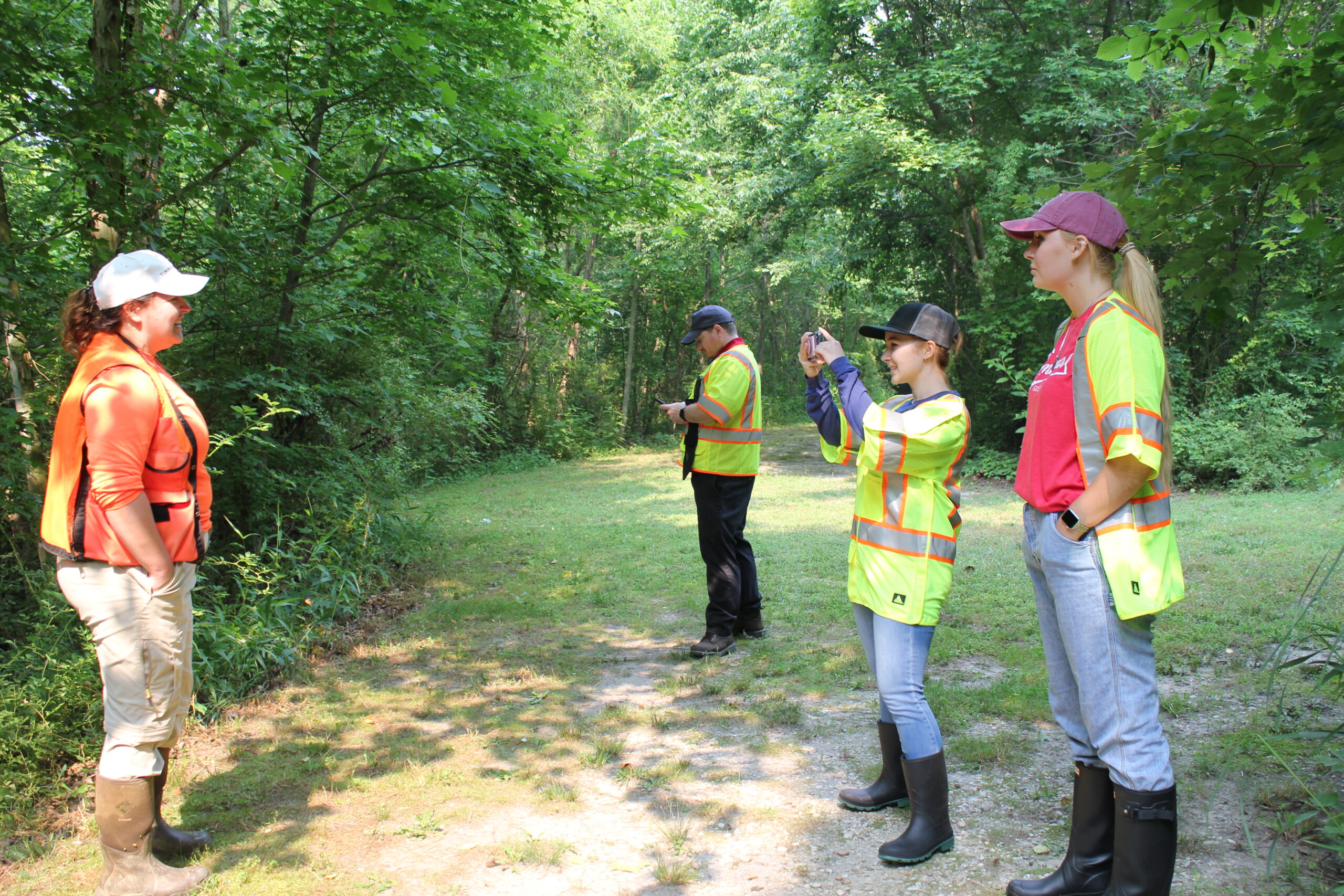
On the first day of the site visit, Katie Atkinson, a project manager on the stormwater team, explained to us what the crew’s task was for the day — a site inspection of the creek bed. “We’re going to take pictures and measurements of structures throughout the creek bed, including any failures we might find. We are also going to note where things are working really well so we can use that in our designs moving forward,” Katie said.
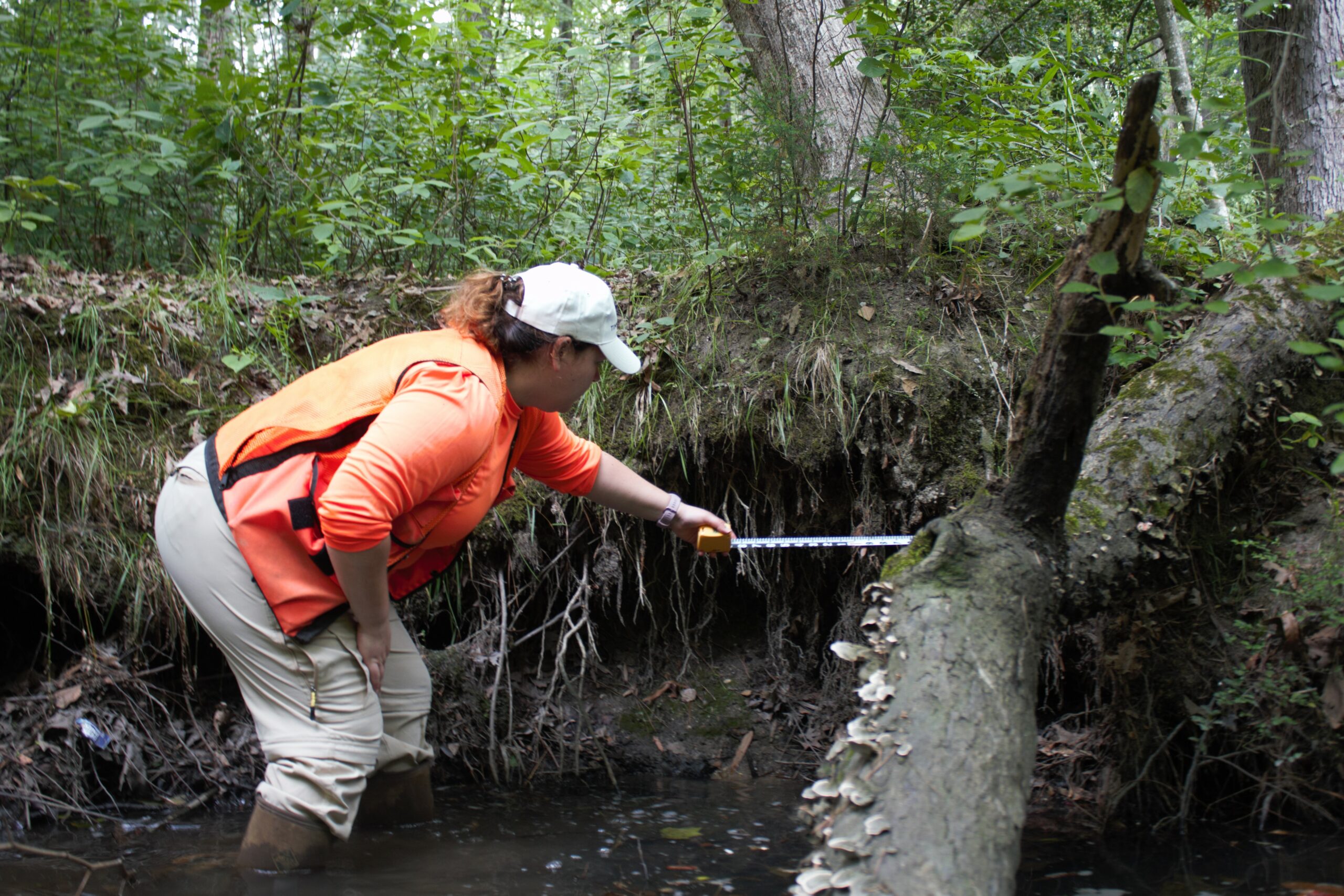
As we followed along with the stormwater team on their inspection, Katie explained the various types of obstructions that were intentionally put in place to either slow down or speed up the creek’s flow, which is sometimes referred to as a ’constructed ripple‘. The team is concerned about how quickly the creek is moving because of erosion. Katie and her team compiled a detailed map that included pictures and notes of areas in which the creek was failing or succeeding.
As day one was coming to an end, I began to give myself a pat on the back because I somehow managed to keep my rainboots from flooding, others were not as fortunate. With a quick stop at Chick-Fil-A and eight nuggets later it was time to head back to the office and upload the photos and videos that were taken.
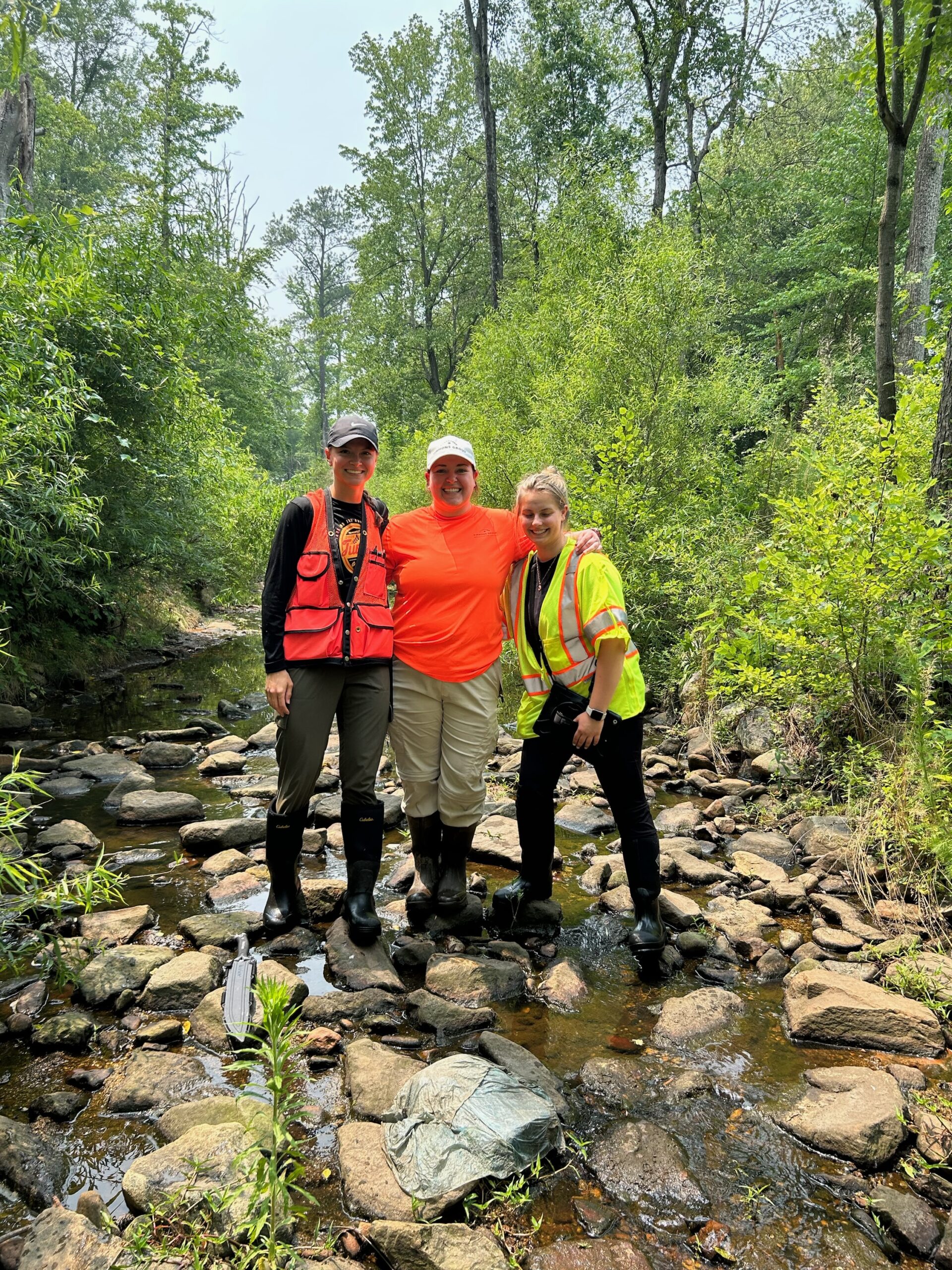
The second day of the inspection was dedicated to completing a BANCS assessment where the team evaluated various factors that contribute to the stream’s current condition and its Stream Bank Erosion Hazard Potential (SBEHP). (About a week after the trip I found out that BANCS stood for ‘Bank Assessment for Non-Point Source Consequences of Sediment’, and it was in fact not spelled BANKS). The team assessed the creek’s banks on multiple factors, like its physical condition, Bank Erosion Hazard Index (BEHI), and Near-Bank Stress (NBS). These two tests are a part of the BANCS model which is essentially a trusted process for evaluating the SBEHP.
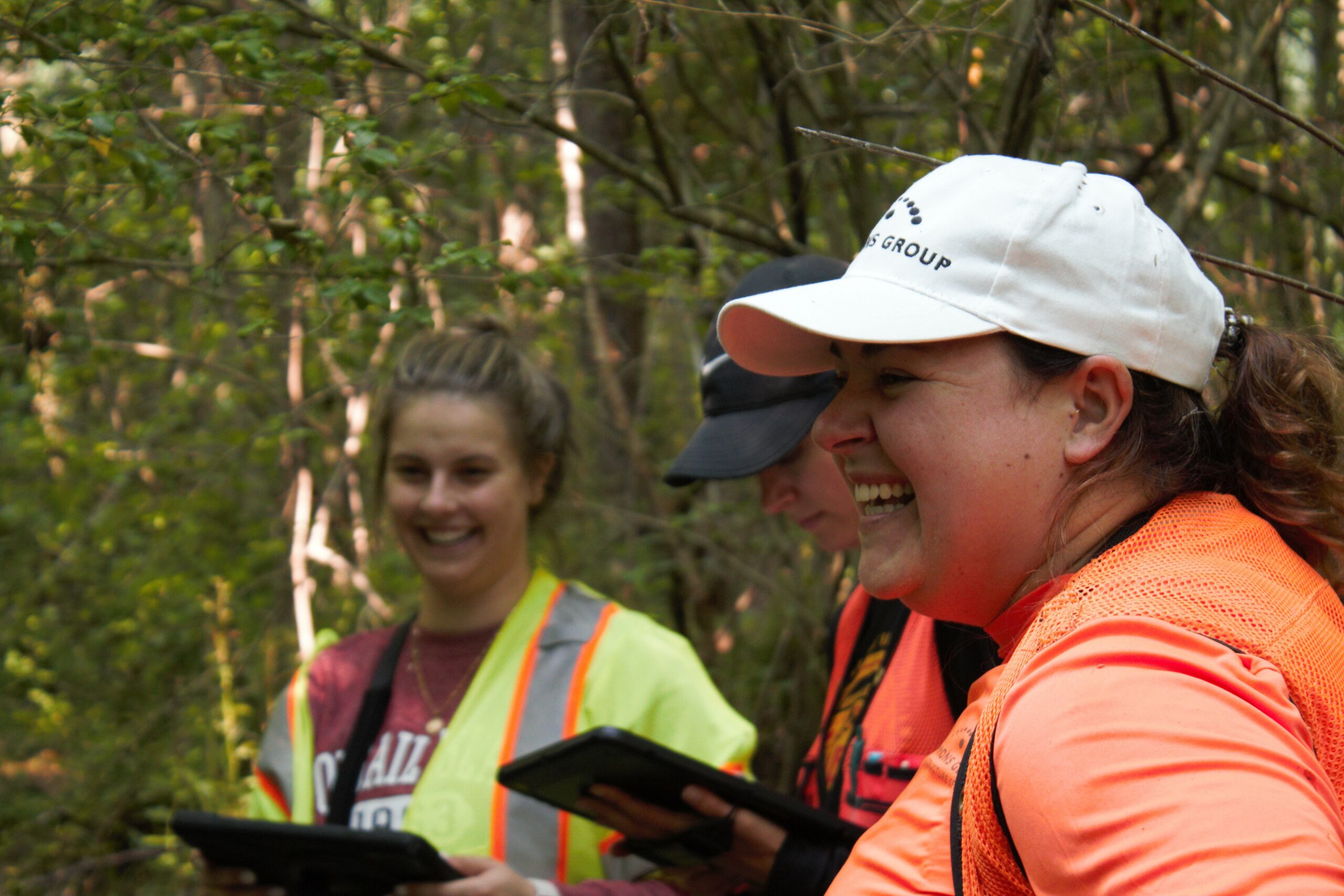
Katie explained that the utilization of the BEHI and NBS tests enable her team to accurately determine the amount of sediment loss occurring in the stream from year to year. “Today, we are using an iPad to run a few surveys and take pictures of the creek. When we get back to the office, we’ll compare the data to the photos and break down the creek’s status,” Katie said. Throughout the bank evaluation, the team was constantly exclaiming “bangle!” with a giggle, referring to the bank’s angle. The determined “bangle” is used throughout their many calculations to assess the bank’s stability, rate of erosion over time, and overall safety. Assessing the “bangle” is key to understanding the creek’s characteristics of and helps influence future decisions regarding bank management and erosion control strategies.
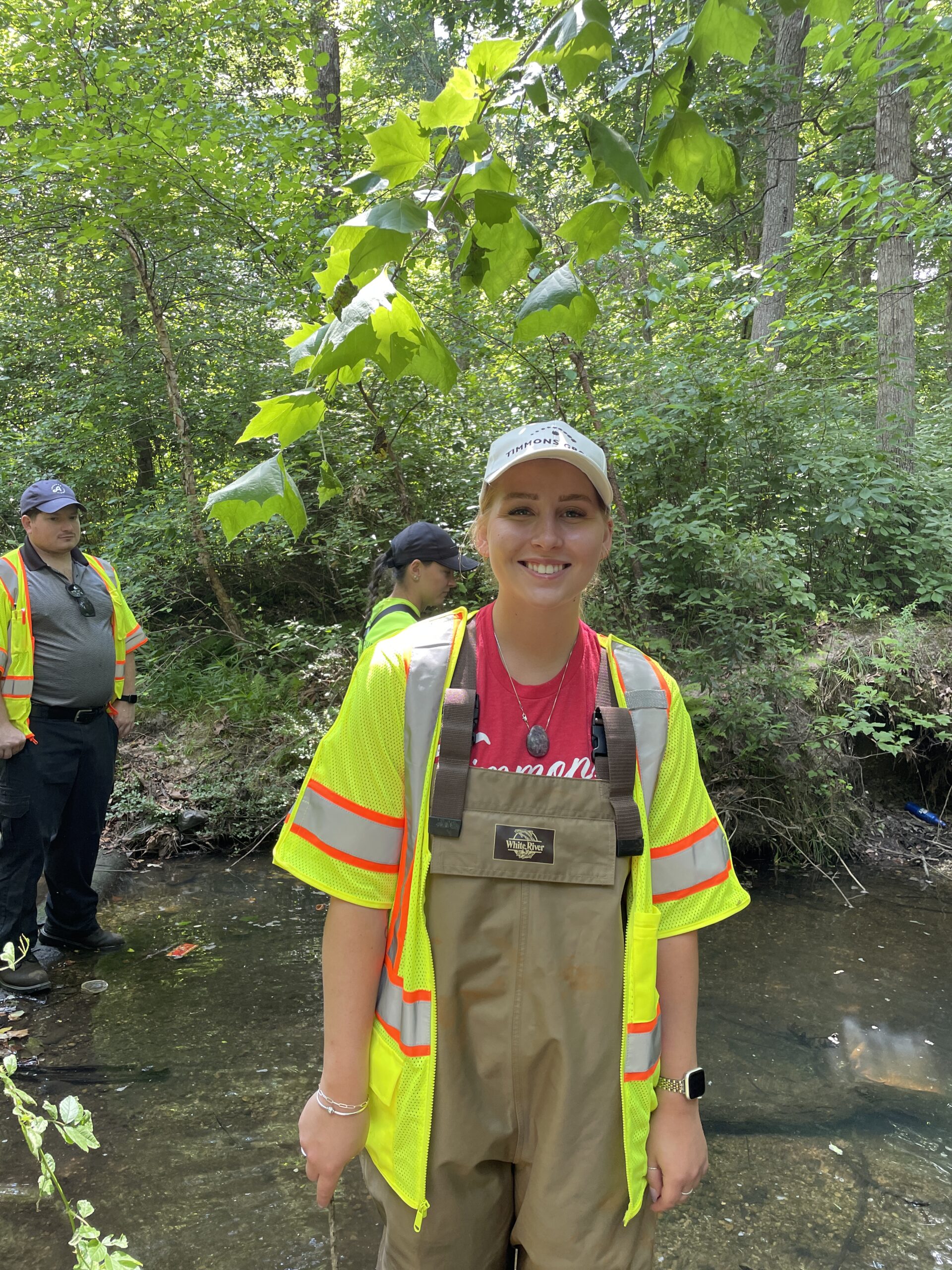
Getting a chance to venture out of the office and into the woods was a welcomed experience! However, the added privilege of obtaining first-hand knowledge about the intricacies of the stormwater design team and their testing procedures proved to be a valuable learning opportunity. Going on a site visit with the team was truly an informative experience — Whether that meant carrying around a stick with the sole purpose of fending off spiders and their webs (as pictured above) or standing almost waist-deep in the creek, I gained a lot of interactive knowledge on this visit! Prior to this site visit, I never fully understood how or if small creeks are maintained, but now, I see how vital it is for stormwater professionals to conduct creek inspections.
